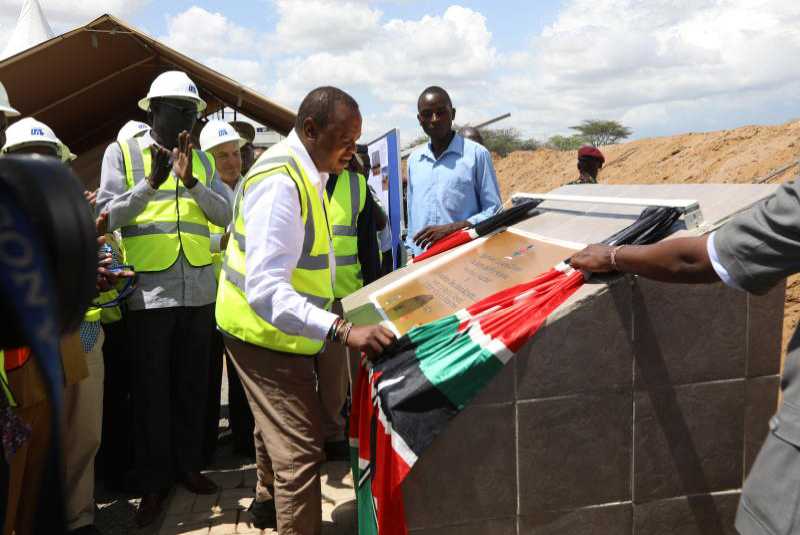
President Uhuru Kenyatta officially unveils a commemorative plaque at the Ngamia 8 Oil Well in Nakukulas, Turkana County. The president flagged of four tanktainers setting off from Lokichar to the Kenya Petroleum Refineries Limited in Changamwe. Kenya is the first East African country to exploit it's oil. 03-06-2018.[ PHOTO: KEVIN TUNOI/STANDARD]
Think of Turkana County and what comes to mind are imprints of emaciated people suffering from pangs of hunger, as a result of drought. For several decades, residents who have depended on livestock for livelihood have often been hit by drought, characterized by need for relief food and extreme poverty.